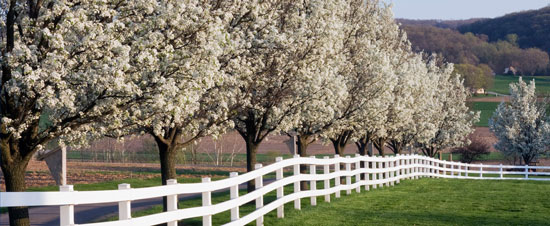We are often asked “Is this the worst one yet?” Well, worst is a relative term and depends on the criteria by which you compare. We can say that we had a prolonged spring pollen season having recorded 51 days in the high or extremely high range between March 1 and April 30. Compare that to 41 days in 2015 and 39 days in 2014 where the pollen count reached the upper ranges during the same time frame. So in one sense this year was worse than the previous two years. Weather has a lot to do with the behavior of the trees. The warm and wet winter followed by a drier and cooler spring likely led to the high counts.
Is It over?
Well, that depends on what triggers your allergic symptoms. The spring is divided into two separate seasons for pollen with some overlap.
In general, trees begin to pollinate in mid to late March and continue until early May. This season has a visual component as the very large and heavy yellow pine pollen can be seen on cars, walkways and even in the air. Interestingly, pine does not cause much in the way of symptoms due to the fact it is not in the air long. It is the other tree pollens that appear in the spring, like oak and hickory, that have much smaller, invisible pollen grains that cause most of the misery.
Grasses begin to pollinate in mid-April and continue through the end of May or early June depending on the year. The amount of pollen from the grasses is far less than the trees but stays airborne quite a long time and can cause nasal and especially eye symptoms. Weed pollen can be found in the late spring but rises significantly in the late summer and early fall. Sometimes referred to as “ragweed season,” late August through September in the South can be a challenging time for those that are sensitive to weed pollen. The daily pollen count for both grasses and weeds will not produce the high numbers we see during the spring tree pollen season, but the symptoms can be just as miserable for those with grass and weed allergies.
What Can I Do?
There are a number of specific treatment options today for controlling hay fever symptoms in the spring and fall. Medications are of course able to provide quick relief but do not change the future. Allergy immunotherapy takes time to build up your tolerance but can provide relief for many years into the future.
Skin testing is the most accurate form of allergy testing and can provide an answer as to which grasses, which trees, and which weeds are causing your symptoms. Based on this test, allergy immunotherapy may be recommended and can be administered by shot, liquid drop or dissolvable tablet under the tongue.
Treatment decisions at Atlanta Allergy are tailored to the individual patient’s needs and desires. Make an appointment to be tested and find out your specific allergies and your most effective treatment options.
Follow the daily pollen count. Sign up here for daily email.
Prepared by Dr. David Carlton.

